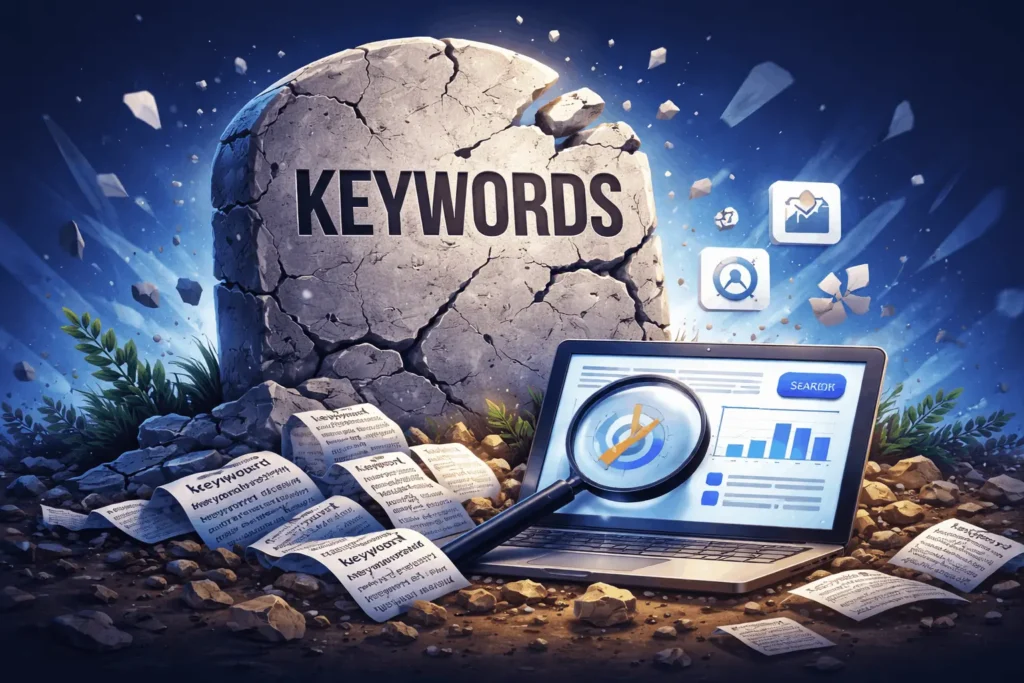Why Website Security Is Like Locking Your Shop
Consider your website as your business premises.
Would you ever leave your physical shop unlocked overnight, cash in the drawer, and the front door open? Of course not. You’d close the windows, lock the doors, and perhaps even install CCTV or hire a guard.
However, when it comes to websites, many business owners unknowingly leave their “digital shop” wide open. Cybercriminals do not need to smash glass or pick locks; they simply hunt for vulnerable websites and walk straight in.
Your website contains essential information such as client phone numbers, emails, credit card details, and even sensitive business information. Losing that data not only results in financial loss but also destroys customer trust.
This article will walk you through the fundamentals of website security in clear, everyday language. By the end, you’ll understand how to defend your website in the same way that you would a real shop, with levels of locks, guards, and safety nets.
1. Why Website Security Matters
A lot of business owners think:
“Why would hackers target me? I’m small. I don’t have millions in sales.”
“Why would hackers target me? I’m small. I don’t have millions in sales.”
Here’s an unpleasant truth: hackers love small businesses. Why? Because many small firms fail to invest in proper security. They are more easily broken into than large businesses.
Imagine two houses on a street:
- One has alarm systems, cameras, and guard dogs.
- The other has old locks and an open window.
Which house would a burglar choose? The second one. That’s exactly how hackers think about websites.
If your site is hacked, here’s what can happen:
- Customer trust evaporates - Would you type your credit card into a site that says “Not Secure”?
- Financial loss - Orders may vanish, payments could be stolen, and customers might never come back.
- Reputation damage - News spreads fast when customer data leaks.
- Google blacklisting - Google may flag your site as “dangerous,” driving away visitors
👉 So, even if your business is small, your website needs real security. It’s not optional. It’s survival.
2. SSL Certificates: The Padlock That Protects Data
You’ve seen website URLs that begin with https:// and have a padlock icon next to the address bar. This padlock is powered by SSL (Secure Sockets Layer).
Think of SSL as an envelope.
- Without SSL – Open postcards are used to send information such as your customer’s phone number, email address, or credit card. Anyone along the way can read it.
- With SSL – That same information is sealed inside a secure envelope that only you and the customer can open.
Why SSL matters so much:
- Trust factor - Customers won’t stay if they see “Not Secure.”
- Payments - Banks and gateways refuse to work with sites without SSL.
- Search ranking - Google gives a small boost to secure websites.
👉 Bottom line: SSL is the first lock you add to your website. Without it, you invite strangers to read your private conversations.
3. Firewalls: The Security Guard at Your Gate
Imagine your business building. Do you let anyone wander in? Probably not. A security guard would be stationed at the entry, watching who is entering.
A firewall serves as your website’s security guard. It screens all visitors before allowing them in. If someone appears suspicious, such as a hacker, a spam bot, or someone attempting to overload your website, the firewall blocks them.
What a firewall protects you from
- Password guessing attacks - Hackers are trying “123456” or “password” thousands of times.
- Fake form submissions - Bots filling your booking or contact forms with spam.
- Data theft attempts - Hackers are trying to sneak into your database.
Without a firewall, your website is like a shop with open doors for everyone, including customers, thieves, and vandals. With one, you get to decide who enters.
4. Malware: The Silent Disease of Websites
Just like people catch viruses, websites can get infected with malware (malicious software). The issue is that malware usually works quietly in the background. You could fail to notice until the damage is severe.
What malware can do:
- Redirect visitors from your site to shady websites.
- Steal customer details and send them to hackers.
- Turn your site into a spam machine, sending emails without your knowledge.
How do you even know your site is infected?
- Customers complain that something feels off.
- Google puts up a red warning: “This site may harm your computer.”
- Sales suddenly drop because visitors are scared away.
The solution is to scan and clean malware. Consider it your website’s regular health checkup. Malware scans detect and wipe out viruses before they spread, just as you would see a doctor before an illness spreads.
5. Backups: Your Digital Insurance Policy
Imagine your shop burns down. If you have insurance, you can rebuild. If not, you’re done.
A backup is like an insurance policy for your website. It’s a saved copy of your full site that can be restored in case something goes wrong.
Best practices:
- Automatic backups - Done daily, so you never forget.
- Stored safely - Not on the same server (because if that server crashes, you lose everything).
- Multiple copies - Keep several versions in case one is also corrupted
Without backups, a single hack or server failure might erase years of labor. Backups allow you to recover your website within hours.
6. Updates: Don’t Trust Old Locks
Would you trust an old, rusted lock to keep criminals out? Probably not. However, many websites depend on outdated WordPress, plugins, and themes.
Hackers know these outdated versions contain “holes.” They build tools to break through them in seconds. Regular updates are like changing your locks. They patch security holes before hackers can exploit them.
Skipping updates is similar to leaving your keys under the doormat.
7. Multi-Layered Security: Why One Lock Isn’t Enough
No shop relies on just one lock. You’d use a lock, a shutter, cameras, and maybe a guard.
Website security is the same:
- SSL = encrypts customer data.
- Firewall = blocks intruders.
- Malware scanning = detects hidden infections.
- Backups = restore after a disaster.
- Updates = close known holes.
👉 Alone, each one helps. Together, they make your website strong enough to resist most attacks.
8. Why Google and Customers Care About Security
If your website is not secure, Google will display a dreadful warning: “This site may harm your computer.” Customers leave immediately.
Even without Google’s warning, users look for the padlock symbol. No padlock means no trust. Without trust, they will not purchase, book, or call.
👉 Security isn’t just about stopping hackers. It’s about winning customer trust and getting more sales.
9. Advanced Security for Growing Businesses
Risk increases as your business grows. Bigger websites draw greater attention, both from customers and hackers.
That’s when you need advanced measures:
- Two-Factor Authentication (2FA): A second step (like an SMS code) before logging in.
- DDoS Protection: Stops hackers from flooding your site with fake visitors.
- Server Hardening: Extra security on the hosting level.
- 24/7 Monitoring: A team watching your site around the clock.
👉 Think of this as going from “padlocks and shutters” to a full alarm system with security patrols.
10. The Real Cost of Doing Nothing
Some business owners say, “I’ll worry about it if I get hacked.” But here’s the problem: t then, the harm is already severe.
What you risk by waiting:
- Downtime - Your site may be offline for days.
- Lost income - Customers can’t book or buy.
- Expensive repairs - Fixing a hacked site often costs 5–10 times more than prevention.
- Destroyed reputation - Once customers lose trust, many never come back.
👉 Doing nothing is actually the most expensive option.
11. A Culture of Security: Training Your Team
Even with all the right tools, people can still be the weakest link.
Common mistakes include:
- Using passwords like “123456” or “admin.”
- Clicking on suspicious email links.
- Sharing admin access without limits.
That is why security includes training your employees. Good habits, such as strong passwords and cautious clicking, reduce hazards by half.
A decor brand reduced mobile page load time by three seconds. Bounce rate fell by 34%. Their organic search traffic grew after they improved Core Web Vitals.
Safe Websites = Safe Businesses
Your website is more than a digital brochure. It’s your shop, sales desk, booking counter, and cashier, all in one.
By investing in:
- SSL certificates
- Firewalls
- Malware protection
- Backups
- Updates
you’re not just protecting a website. You’re protecting your money, your customers, and your reputation.
Most businesses only care about security after they’ve been hacked. By then, the damage is painful.
- Be proactive.
- Protect your website today.
- Sleep easy knowing your business is safe.
At Ideal Web Design, we don’t just design websites. We secure them, maintain them, and keep them running 24/7. Let’s lock down your website today before hackers do.






